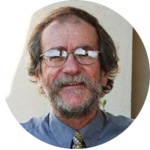
Jim Stasiowski, writing
Writing coach Jim Stasiowski welcomes your questions or comments.
Call him at
(775) 354-2872
or write to:
2499 Ivory Ann Drive
Sparks, NV 89436.
One day back in the 1980s, my editor chewed out everyone in the newsroom for being scooped.
After six decades of the spins in life’s perpetually rotating washers and dryers, my memory has faded like an old T-shirt, but as I recall the object of his ire was a USA TODAY trend story about the blossoming use of those fold-out windshield blockers that kept the daytime sun from turning cars’ interiors into furnaces.
I was thinking about the editor’s criticism because of Colin Kaepernick.
(I’ll pause here while you ponder what seems a ridiculous reach.)
Kaepernick’s protest, refusing to stand for the Star-Spangled Banner, got me thinking about things that I never imagined would happen, such as the way newspapers’ downward business spiral has pushed people of extraordinary journalistic talents, many of them my friends, into other occupations.
For instance, as a kid, I would go to baseball games in Memorial Stadium in Baltimore. The big difference today?
No smoking.
In the 1950s and ’60s about half of the U.S. adult population smoked tobacco. At a night baseball game, by about the fifth inning, a massive cloud of tobacco smoke loomed above the stadium.
Now when I go to a baseball game, smoking is forbidden, so there is no more smoke cloud. I never thought that would be the case.
I never thought anything could keep car interiors protected from the sun, I never thought my friends would leave their newsrooms, I never thought athletes would refuse to stand for the anthem, I never thought a Donald-Trump-like person would be a presidential nominee of a major political party.
We journalists are not good at spotting things and thinking, “What’s next?”
We are excellent at writing about things after they have happened and are firmly established. I suspect by now every newspaper has done the obligatory survey of local Republicans about whether they are supporting Trump for president against Hillary Clinton.
But we need to foresee better.
The editor who chewed us out for being scooped on a story about those windshield blockers went around the room and asked who had noticed them. We all sheepishly answered, “Yes,” but acknowledged we didn’t think of doing a story about them.
Should we have foreseen the rise of Donald Trump?
That’s not easy to answer. In the political process, we have been accustomed to the instantaneous insurgent candidate who, for a week or two, grabs front-runner status – remember Howard Dean? Michele Bachmann? – only to disappear abruptly, allowing the establishment (boring) politician to claim the nomination.
Through most of the 2016 Republican nomination process, even extremely astute politicians assumed that Trump was another Bachmann, another Herman Cain. Surely Jeb Bush would rise to the top, and if not he, Marco Rubio or Scott Walker or even Ted Cruz.
But we journalists missed something. We missed – probably because we didn’t ask – whether voters’ discontent with the nation’s course was deep enough to drive them into the arms of a real maverick, not a career politician who opportunistically boasts of being an anti-Washington zealot.
Even now, when I talk to friends who cannot believe Trump may have his left-hand-on-the-Bible moment next Jan. 20 on the Capitol steps, I have to say, “But that’s because you’re not as disgusted with The System as millions of voters are.”
Here’s how forgetful journalists are: In 1988, one of the hot issues in the presidential campaign was how to tackle the national debt, which at that time was about $2.6 trillion; now it is $19 trillion.
If $2.6 trillion was a big campaign issue 28 years ago, why is it barely a whisper this year?
Shouldn’t someone write that story?
In my extended neighborhood – I take lots of long walks – one car has a Trump bumper sticker and one home has a Trump yard sign; there are no Clinton bumper stickers, but she has one yard sign.
I suspect that lack of grassroots advertising reflects the public’s dislike of both candidates. Have reporters asked why so few signs?
And what about early voting? Especially in this raucous, anything-may-happen-at-any-time campaign, shouldn’t voters be required to wait until Election Day? Have we traded voter knowledge for voter convenience?
Can we explore that in print?
Already, the coverage of Kaepernick’s protest has subsided, even though other athletes have followed his lead. But what if a star quarterback, rather than a backup, is the next to kneel for the anthem? A year from now, five or 10 years from now, will entire teams participate?
If we are going to be responsible journalists, we need to look ahead, anticipate the effects of events, which means looking more deeply, brainstorming for creative questions.
Look around. Ask questions if you see (or don’t see) something odd, especially if it’s in a car’s windshield.
THE FINAL WORD: A sportswriter referred to a pitcher as having a “credible fastball.”
“Credible” means believable; I’m sure the sportswriter meant “creditable,” which means “deserving some credit or praise.”
